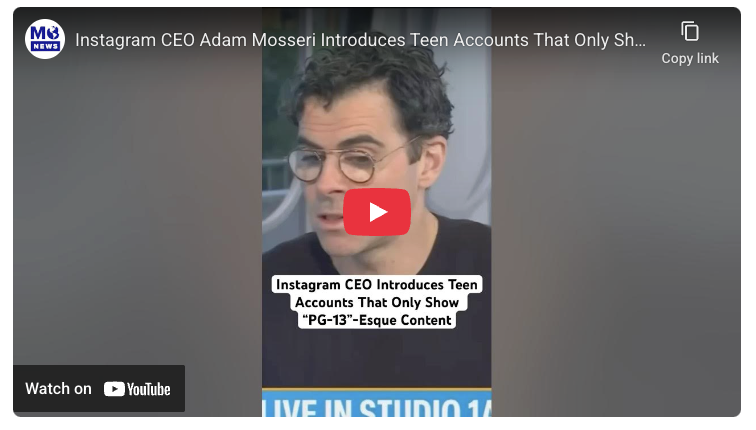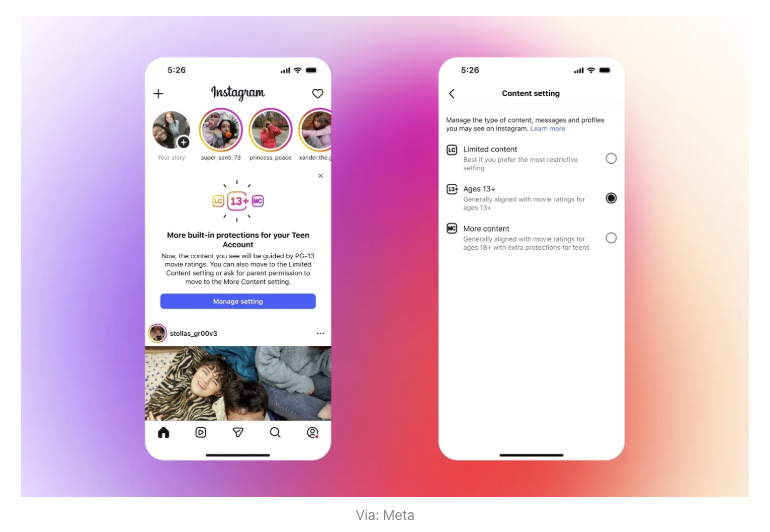Instagram Introduces Teen Accounts With “PG-13”-Like Content Restrictions
Instagram is revamping its guidelines about what teens can and cannot see on the platform in a way that is guided by the PG-13 rating that was pioneered by the movie industry.
Instagram head Adam Mosseri discussed the change on the Today Show Tuesday, where he outlined how teen accounts — accounts for people aged 13 to 18 — will now automatically only interact with PG-13-type content.
”I’ve got three kids. I know parents are busy, which is why it’s so important that the defaults are safe,” Mosseri said.
WHAT IT WILL LOOK LIKE
The “PG-13” rating means that teenage Instagram users will not be able to search for or follow accounts containing nudity, sexual content, and suggestive poses from teens, the company said in an announcement. It will also make it more unlikely that a teenage Instagram user sees or interacts with posts containing strong language or that promote “harmful behaviors,” such as risky physical stunts.
This rating, according to the Motion Picture Association, means: “Parents are urged to be cautious. Some material may be inappropriate for pre-teenagers.”
Instagram says, “Just like you might see some suggestive content or hear some strong language in a PG-13 movie, teens may occasionally see something like that on Instagram.”
The restrictions will also limit Meta’s AI chatbots to only give age-appropriate answers, after a Reuters investigation found evidence of chatbots flirting with teens earlier this year.
Rewind: Instagram began automatically creating teen accounts last year for all users under 18. Accounts for teens mute notifications between 10PM and 7AM, are automatically private, and block direct messages from strangers.
LOOKING GLOBAL
Instagram’s “PG-13” restrictions come as several countries and states want to ban social media for teens altogether.


